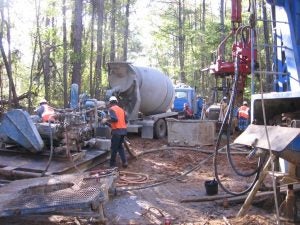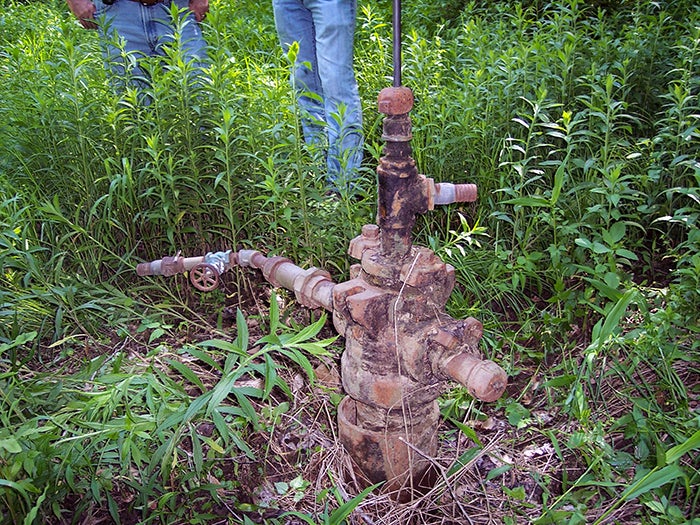Funding to plug and remediate orphan wells moves forward in the Senate
 The bipartisan infrastructure bill currently under debate in Washington includes a new, $4.7 billion program to address a significant environmental legacy of the fossil fuel industry — the plugging and remediating of orphan oil and gas wells.
The bipartisan infrastructure bill currently under debate in Washington includes a new, $4.7 billion program to address a significant environmental legacy of the fossil fuel industry — the plugging and remediating of orphan oil and gas wells.
Orphan wells have no owner, so the cleanup liability falls largely to the public. Nearly 60,000 such wells have been documented by state and federal agencies, but there are likely many hundreds of thousands more scattered across more than two dozen states.
Unless properly plugged, oil and gas wells no longer in use pose major environmental hazards. They can contaminate groundwater and surface water resources. They emit methane — a potent greenhouse gas over 80 times more powerful in contributing to warming in the short term than carbon dioxide. They can also release air pollutants that are hazardous to human health.
And they can continue to pollute for generations to come. But despite the threat they pose to the environment, public health and property values, funding for programs to plug and remediate orphan wells has been insufficient to the magnitude of the task; at current rates, it would take hundreds of years to complete the current backlog of work in some states.
Funding to plug and remediate orphan wells moves forward in the Senate Share on XAs Congress began funding large-scale economic stimulus during the COVID-19 pandemic, EDF recognized the unique opportunity to create jobs, reduce climate and local environmental impacts and protect public health by plugging and remediating orphan wells.
We organized and worked with a diverse array of stakeholders to ensure bipartisan legislation led by Sens. Ben Ray Luján of New Mexico and Kevin Cramer of North Dakota called the REGROW Act that would plug all documented orphan wells in the country was included in the bipartisan infrastructure package. The bill would also make a down payment on cleanup for the broader population of improperly abandoned wells.
That broad coalition includes the Interstate Oil and Gas Compact Commission, a bipartisan group of a dozen governors, National Wildlife Federation, Independent Petroleum Association of America, Clean Air Council, Evangelical Environmental Network, Grand Canyon Trust, Moms Clean Air Force, National Audubon Society, New Mexico Wild, Pennsylvania Environmental Council, Rocky Mountain Farmers Union, and others.
The REGROW Act now has eight bipartisan Senate sponsors, a companion bill in the House, and is included in the current infrastructure package under debate in the Senate this week. In addition to funding plugging and remediation for all documented orphan wells in the U.S., the bill incentivizes policy improvements to reduce future orphan well burden through enhanced plugging rules, financial assurances of private funding to plug wells, and reforms to idle well management and well transfer rules. The legislation also funds research to find and prioritize undocumented wells for plugging.
The benefits of this work are clear — creation or retention of tens of thousands of oilfield services jobs across the country, reduction of climate and toxic emissions, protection of groundwater and surface water and protection of the health and safety of people who live in close proximity to these wells.
Environmental groups, state governments, industry and a bipartisan group of lawmakers are coming together to take this once-in-a-lifetime opportunity to plug and remediate old oil and gas wells across the country and clean up the legacy of the past. As to currently active wells, EDF looks forward to working with state and federal agencies on comprehensive oil and gas reforms to ensure that these wells are promptly and properly plugged at the end of their productive life.











